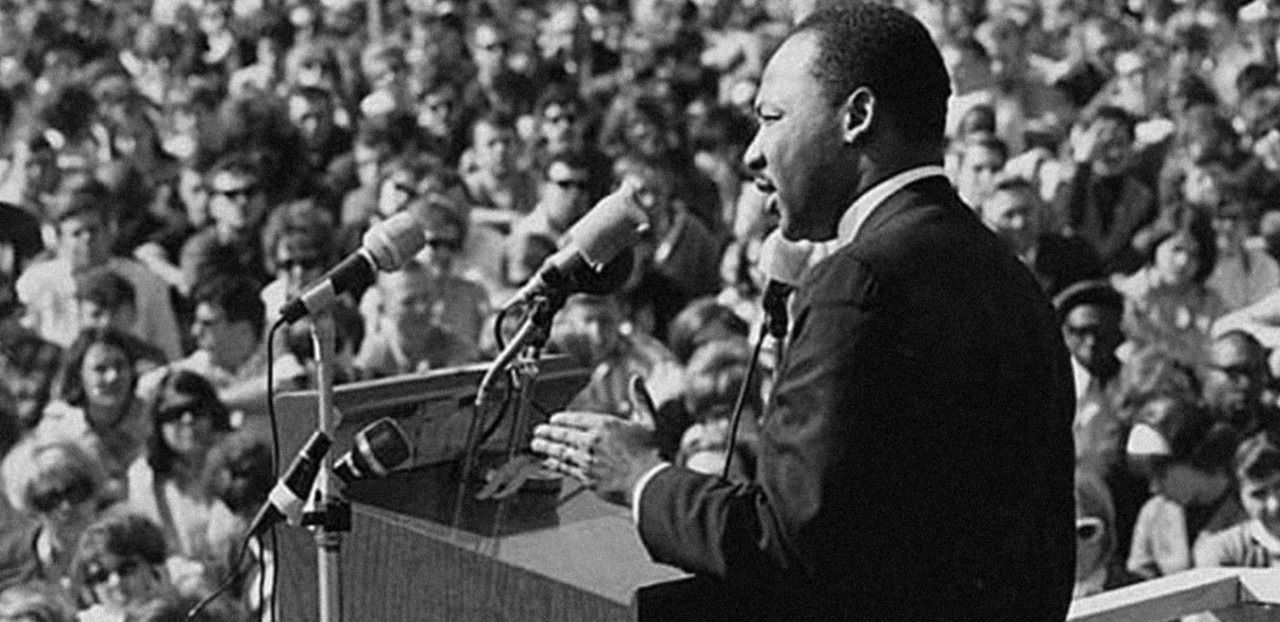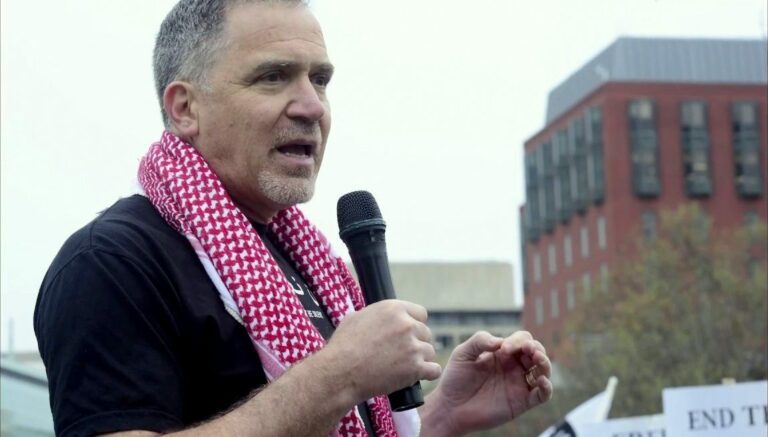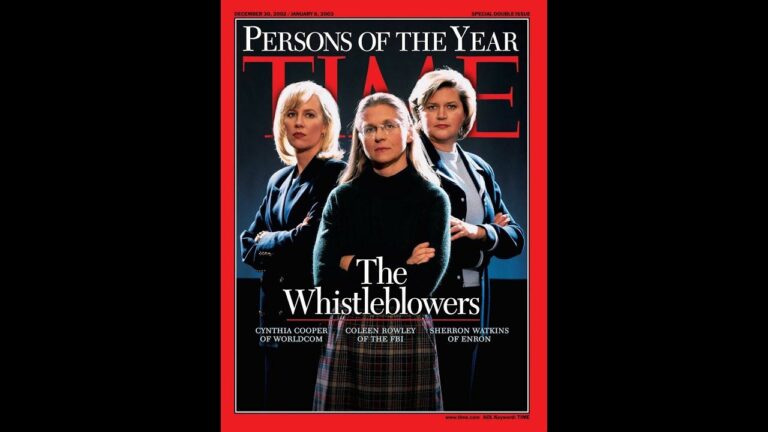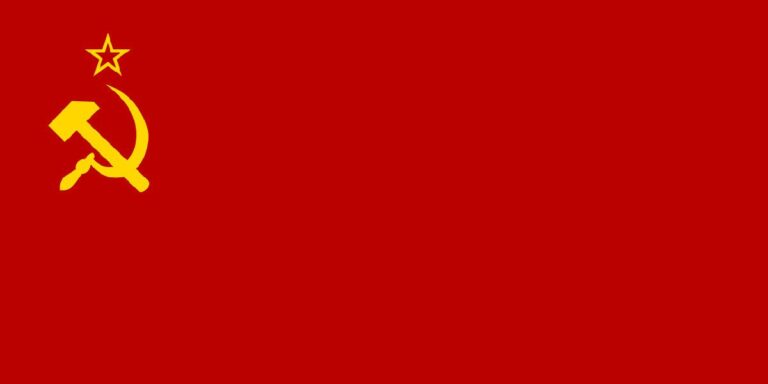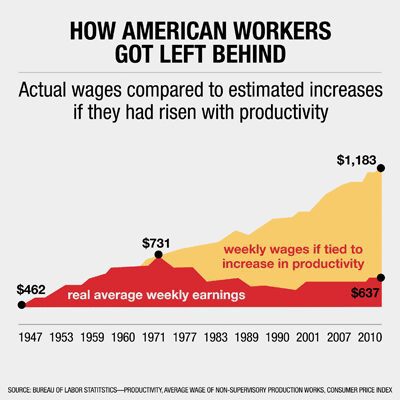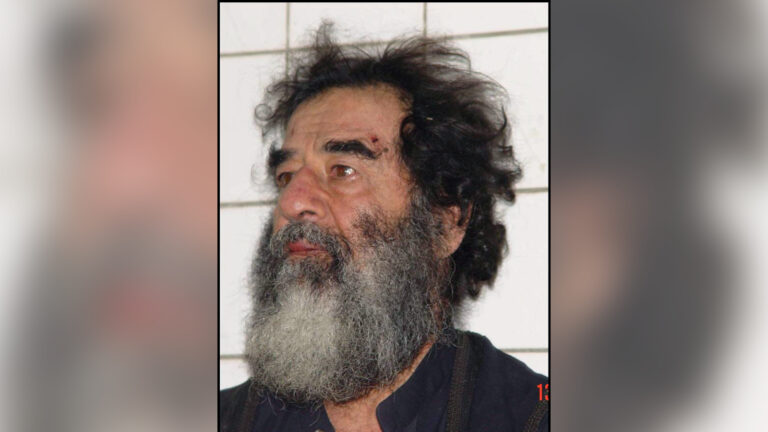MLK and a Radicalizing Moment in American History – Michael Ratner on Reality Asserts Itself Pt 3/7
Mr. Ratner tells Paul Jay how the message and death of Dr. King, the army occupation of Baltimore, and the police attack on the Colombia U. protest profoundly shaped the rest of his life. This is an episode of Reality Asserts Itself, produced March 6, 2014 with Paul Jay.
STORY TRANSCRIPT
PAUL JAY, SENIOR EDITOR, TRNN: Welcome back to The Real News Network. I’m Paul Jay in Baltimore. And this is Reality Asserts Itself with Michael Ratner.
Now joining us in the studio is Michael, who’s president emeritus of the Center for Constitutional Rights in New York, chair of the European Center for Constitutional and Human Rights in Berlin. He’s the WikiLeaks’/Julian Assange’s American lawyer and, I think it’s probably safe to say, one of the leading if not the leading radical human rights lawyers in the country.
Thanks for joining us again.
MICHAEL RATNER, PRESIDENT EMERITUS, CENTER FOR CONSTITUTIONAL RIGHTS: Thank you for that nice compliment, Paul.
JAY: Oh, more–I think it will be clear from this series and everything else, more than deserved.
So we’re going to pick up the story in 1966. You go to Columbia. So pick things up from there.
RATNER: I go to Columbia Law School. My father’s dead already. There’s still a business in Cleveland. I don’t want to go back to Cleveland and I don’t want to go into business. I go into law school. I didn’t know what I wanted to do.
I worked like a dog the first year of Columbia Law School, you know, upper–really, upper middle class law school, you’d have to say. It had 300 people. Two hundred and ninety–270 had to be white males. It had ten women, probably six African Americans. I mean, just maybe ten. I mean, it was–these were incredible institutions.
JAY: And are Jewish students just starting to break in around that time?
RATNER: At that time I don’t think at Columbia, at least, it was a problem. I don’t know, but I think–. Before then it was a problem. At colleges it was still a problem, like Yale and stuff like that in the ’60s. But by the graduate level of at least Columbia Law School, it seemed to be pretty open. I don’t know, but I think so.
JAY: Give us a feel for 1966-67, that year at Columbia.
RATNER: It’s unimaginable, actually, because it’s all male, almost, it’s all white, with very few exceptions. You know. And you had Saturday classes. And they had just abolished wearing ties and jackets to class. But you still sort of wore a jacket, and it wasn’t anybody but a white professor. Nobody. There was no women professors, no black professors. Nothing. This was an institution that was serving the ruling elites of the country, and particularly in this case (Columbia), Wall Street and the big firms feeding in. There were no human rights classes, no civil rights classes, nothing. This was, like, I mean, a total blank.
At the same time, for some reason I decided to work hard. I got very involved in just doing all the /’dZAn.kikEt/ work. You know, I did fine.
JAY: And this little white oasis for training new members of the ruling class, around it is a world where there’s a Vietnam War, a rising civil rights movement, national liberation movements.
RATNER: Right. And it’s on the edge of Harlem. I mean, Columbia is 116th Street. Harlem, you know, was 125th street in Manhattan. But you’re making a very good point. So it has, really, a black community–encompassed part of the university. And then the university itself is doing war research to help with the Vietnam War. And it’s doing other things.
But that’s–you know, you go to law school, you just–it’s very hard, law school, in the sense that it’s a lot of work, and you just have your nose in the books. I never–I didn’t do anything. I just worked all the time. And after a year at Columbia, I decided to take the year off, because I was just exhausted from it, I think.
JAY: ‘Kay. Just one thing. In that year when you go to Columbia, if you had to imagine where you would be five or ten years later, would you have thought Wall Street? Or are you already thinking some other kind of law?
RATNER: I was thinking there was a place to–a liberal law firm, whatever that meant. You know. I mean, some law–that was still at times hard for Jewish people to get jobs in certain law firms. I mean, you know, I just–there was a number. But there were–by that time it was opening up. So I thought: liberal law firm–there was such a thing, I thought. And there were, supposedly, but they wouldn’t be liberal by any of my standards, or yours today, probably. But that’s what I thought through the first year, that I would go to a liberal law firm.
JAY: Alright. So you take a year off and you come to Baltimore, where we are now.
RATNER: Right. I take a year off and I get a job at the Legal Defense Fund, which was the legal arm of the NAACP at the time, and it was separated out. And I did a lot of work at Legal Defense Fund. I knew some of the real heroes of the civil rights movement, I mean, that were represented. You know, Muhammad Ali. They were–you know, it was–I saw Arthur Ashe there. I mean, it was, like, pretty incredible. I mean, you know, Legal Defense Fund wasn’t radical, but it was representing, you know, at least in large–you know, some very important African-American cases and figures.
JAY: So this is now ’68.
RATNER: This is ’67, ’68.
JAY: So what does Baltimore look like then?
RATNER: Right. Well, I remember when I got off at the train station today it looked exactly the same. The wooden benches are there. I got off on a cold rainy night. A civil rights lawyer picked me up to work with the Legal Defense Fund. And I don’t remember that much. It was a few weeks ago–I mean, it was a few weeks I spent here.
And my job was to get the statistics and have meetings with this civil rights lawyer via his assistant on a desegregation case, because I don’t remember the two counties, maybe Prince George’s and Arundel–are those two counties? And one was all-white county, and one was a primarily black county. And the schools, of course, reflected the nature of living–of the living. And the Legal Defense Fund wanted to try and integrate those schools so you’d have black kids going to white schools and white kids going to black schools. And that was a big thing of the Legal Defense Fund during that period was legal desegregation. And my job was just getting the statistics, going to the meetings, and getting that done.
So I’m here about three weeks. I’m living, maybe, partly at the civil rights lawyer’s house, partly I get a motel room that they give me. And then King is murdered, Martin Luther King is murdered. And at that point, I’m in the room, in my hotel room here, a hotel room, and the whole city of Baltimore explodes. I mean, and I was confined to that hotel room for at least four days, as I recall, eating those little things out of the machine, my favorite little cheese crackers. But it was a serious business. There were tanks, troop carriers going through the streets of Baltimore. It was utterly intense after King’s murder. And that was really the end of my adventure, if you want to call it that, in Baltimore.
I got out of here eventually, and I still worked for the Legal Defense Fund. I went back up to New York where their office was, at Columbus Circle.
JAY: Just in terms of those days, what did it mean for you in terms of your understanding of America? I mean, you were going to Columbia, this insulated place. Now, I mean, just, frankly, going from New York to Baltimore is a trip, but going from Columbia to Baltimore on fire is a big trip.
RATNER: Right. But, of course, you know, it’s interesting when I think about it now [incompr.] going from Columbia to the Legal Defense Fund, and the Legal Defense Fund was mixed, but it was probably a majority black then. So I started to work with African Americans in a different way than I had, really, in my whole life, as colleagues, that I haven’t had growing up. And then I come to Baltimore, and, of course, who am I meeting with? I’m not meeting with the white parents who want to integrate the schools; I’m meeting with black parents. And so that’s already a big shift. And I’m living in, you know, black neighborhoods. It’s a very, very big, very big change for me, but one that I didn’t–I don’t think I was so conscious of it at the time. I’m conscious of it now that we’re talking about it, but I wasn’t conscious of it now.
But King’s death, I think that was, you know, like–it was one of the most depressing moments of my–personally, that I felt. I mean, I was just destroyed by it. Just destroyed. I mean, you know, I didn’t want to leave the hotel room. You know, we just wanted to cry. We didn’t want to leave the hotel room. And it was shattering. It was just shattering. I mean, I don’t know how to express it. I just remember it was just–and it was bad weather in Baltimore then, I think for some reason. It was a rainy, bad couple of days with these troop carriers going through the streets. And here I was there to try and, you know, desegregate a little bit. So it was pretty devastating.
And then I went up to New York after that. I went back to the Legal Defense Fund. And then I went up to Columbia. And, again, I was–you have to understand I was probably–I probably stayed friends with some of my friends up at Columbia, but when I went up to Columbia, all hell had erupted at Columbia. I mean, there had been a series of demonstrations while I was–not while I was there, but that year of ’67-68 around the Vietnam War and around–. And it was the Vietnam War. There was the university doing research on the Vietnam War.
And then there was the university plan to build a gym, a big new gym on the edge of the university in Morningside Heights. If you go to Morningside Heights and you go down the hill, it’s an African-American community at the base, and up at the top it’s Columbia and, you know, a more integrated or white community, almost, really. And the gym was going to be opened with a black door for the entrance–not a black–yeah, a black door, a door for African Americans to go through who are coming from Morningside Heights. But the Columbia kids would go through a door from their campus–a white door, essentially. So, I mean, I wish you could make this stuff up, but that’s what the university actually planned. So that became another big bone of contention at Columbia along with the war.
And, of course, all these kids are subject to the draft one way or another, all of us in some way. I’m in school and I got a year off, I got a deferment for a year to work. But basically we’re all subject to the draft. So this is also raising all of the issues on Vietnam. And it’s a civil rights movement, and King has been shot three weeks before–or two weeks before. And so what happens is there’s a–. Yeah.
JAY: Just one sec. How meaningful was King and King’s message, King’s speeches? I mean, how much did that shape your view of the world?
RATNER: You know, I was–it was very important to me, extremely important. I mean, the pictures of what was happening in the South of Bull Connor was very important, certainly by ’68. Sixty-seven, I was so immersed in my books–and this is a terrible story–’67 I’m working so hard that I actually don’t–I’m not even aware that King is giving my favorite single speech that he’s ever given, the Riverside speech, when he says–when he comes out against the Vietnam War, we cannot be silent, we will not be silent. And, you know, I reread it every year. And that’s given across the street from Columbia Law School or Columbia, and I wasn’t even aware of it, I was so immersed in law school.
But certainly by–as I worked at Legal Defense Fund, then I’m completely involved–they represented King–I’m completely involved in the black civil rights movement, moving to black liberation movement at that point [incompr.] least with people who were deeply involved. And those are the cases that I’m working on. And King was crucial.
In fact, when King was–I remember the day. I was in my office at the Legal Defense Fund, and they were working on the Poor People’s March on Washington, which was a King-initiated effort, which was going to be a tent city built on the Mall of both whites and blacks demanding, you know, the war against poverty, demanding that things be done about the impoverishment of people. And I had a big button, you know, that said, you know, March on Washington, Poor People’s march. And then I remember they just made a decision to continue the march even after King was murdered. So it was a–King was by this point quite important to me.
You know, even Malcolm I was aware of during this–you know, I went–as I said, I went to Brandeis before, and they had Malcolm X as a speaker. And it was extraordinary. I mean, I’d never heard anything like that in my entire life, you know, that–about, you know, black history and what it meant in Africa and what had done with–what blacks had done in Africa and the culture and the society. I was just completely amazed by it.
And when I look at that speech–this is Brandeis having Malcolm X–and I look at what goes on today when you want to put on an anti-Zionist speaker at a university and they say that speaker has to be coupled with a Zionist–and I say to myself, what are they talking about? They put Malcolm X on at Brandeis, and there was nobody saying, oh, he’s dead wrong about African Americans, he’s dead wrong about African history. Nothing like that.
So these are all influences that–obviously, that Malcolm X speech, I still remember it. So it obviously was something so striking to me that that was the case.
JAY: So you go back to New York, you’re back at Columbia, and you were saying things were exploding.
RATNER: There had been a series while I was in the South–or Baltimore I consider the South, for me, coming from New York. But they were exploding, and there had been demonstrations and marches and all–lots of–. But the big issues were the gym, Vietnam War, civil rights movement, really. And they’ve taken over–and students have taken over the buildings. And I got there right toward the tail end of it, and there was–it was thousands of students on the campuses. There were no classes or anything. Everybody was out there.
And then a group had formed what they call a Majority Coalition, which was against the people who’d taken over the buildings or against the supporters of the people. And they called themselves the Majority Coalition. In my class–and this shows you what Columbia was like–my class, Governor George Pataki was in that. I knew him then. He was in the Majority Coalition, a very conservative Republican governor of New York. He was in that.
I was just there the last couple of days. And my–some of my–very few law students were in the buildings, because that was high-risk, because you have to go through a character committee as a lawyer. And if you have–they check. If you have bad things in your record, you know, you don’t become a lawyer. But there were maybe half a dozen law students who went into the buildings.
And I was there the night that they actually said they were going to evacuate the buildings–not evacuate; bust the buildings, that the cops were going to come on campus. And we heard the cops were going to come on campus. And what I did then is I formed a group with about 20 people, and we stood in front of the door to Low Library, which is where a lot of the people were in, and I just stood there with our arms locked, singing “We Shall Overcome”. And these cops that were the size of giants, like, you know, longshoremen cops, just charged our line–it’s midnight–well, one, two–charged our line, billy clubs flying, and just picked us up, threw us on the ground, and beat us, blood everywhere, me, everybody. I mean, this was–you got out of that, and they were going–and the buildings were barricaded, a lot of them, etc. There was blood everywhere on the campus at three or four in the morning, everywhere, thousands of cops, or at least hundreds of cops. It was one of the most dramatic nights I’ve ever lived through.
And what you realize from a night like that is here are these–first, in some ways there was a certain privilege, although [incompr.] I don’t recall it well enough, but the black students had a separate building. I’m not sure they were busted in that way, understanding maybe better than the whites what happens when cops come in with their clubs flying. I don’t want to [incompr.] there’s been a lot of writing [incompr.] this. I just don’t recall this whole thing perfectly.
JAY: But you thought white, privileged Columbia students would be somewhat immune from this kind of attack.
RATNER: We said to ourselves, these are the kind of things that happen in the South. These don’t happen to white upper middle class universities. I mean, that was–you know, and it happened. And you recognize at that point a lot. But you recognize first of all an administrator (who then got forced out, the president of the university) who makes the decision to put cops onto a campus. It’s changing the dynamics forever, and in a negative way. He’s, first, radicalizing a huge number of people. My generation at that university was radicalized by that period, but by that night in particular. And a lot of us who came out of that just never, never looked back on going to law firms or capitalism or anything like that. And some people, obviously, shifted, and you have to make a living and a family and all that.
JAY: But it was that for you.
RATNER: It was that for me. At that point I had been–I had actually interviewed for a liberal law firm in Washington who wanted me very much. And after this, it was done, just done. And so that was really a seminal event [crosstalk] life.
JAY: By “done”, you needed to be involved in something transformative.
RATNER: Yes. I was no longer going to be a lawyer working for a big law firm.
And what it did to the law school was extraordinary. I mean, then we had–you know, the law school at that point had no classes. There was a liberation school set up there in the summer. It’s hard to imagine all of this. In 1970, there was what they call the sideshow, the bombing of Cambodia in part of the Vietnam War and Nixon bombing Cambodia. At that point there’s another huge demonstration goes out. Again, the law–the school was closed. So, basically, from after ’68, you could actually go through law school without having to go to classes, essentially, with no grades for lots of it, and they actually put me on the appointments committee because I had good grades and they figured, okay, that I wasn’t in a building, ’cause I happened to be away, and boom, they put me on the appointments committee. And all of a sudden there’s a shift. There’s shift around women starting, shift around African Americans, at least at Columbia, beginning. And of course it’s still–it’s a long story about what it’s become and what it is now, not so good, but–.
JAY: No, but you can see the ripple effect when a mass movement is at such a height.
RATNER: It’s amazing.
JAY: The ripple effect of the power of that movement.
RATNER: It’s incredible. I mean, it was something like–. My children used to say to me they’re so envious of me because I got to live through this movement, this radicalizing moment in American history for a lot of us. And it was quite extraordinary.
And from then on I went to clerk for the only black woman federal judge in the United States, Constance Baker Motley. An amazing story. And I’ll just give one vignette about her. I mean, lots of great stories about her. But I finally, after she died–and I was stupid for not staying close to her as she went on with her life. She liked me a lot and always wanted to see me. She would just always give me cases I had to do for, you know, losing habeas corpus cases that I just [incompr.] I didn’t see her that much.
But when I read her autobiography, she was born in New Haven, and her father was born in, I guess, Nevis or Saint Kitts–Nevis in the Caribbean, and her father had been a shoeshine boy at the Yale Club. She had no money to go to college. Some well-off man saw that she was smart and paid for her to go to college. When I opened her book and I read it, I was so moved. Her opening chapter is: there’s always going to be racism in this country; I understand that. But the bigger problem is going to be class. I almost dropped, because despite our closeness at certain periods, we’d never had that political discussion. And, of course, I kick myself. What the heck was I thinking? Anyway.
JAY: And she was a federal judge.
RATNER: Oh, she was a federal judge. She was, you know, really, really a remarkable woman. She was supposed to go to the circuit court, the next court up. It was nine white men on the circuit court. I mean, Thurgood Marshall had been there shortly before he went to the Supreme Court. And basically they said, we’re not taking her. And whoever was going to nominate her, Johnson or whatever president, wasn’t able to do it. And she argued ten cases in the Supreme Court. She won nine of them. And yet people in that court considered her not smart. And, you know, sometimes I had to bring her her lunch, go to the cafeteria and get it for her. And the reason for that is no one would sit with her. People wouldn’t sit with her when she was–it’s–I mean, it brings tears to my eyes. She was extraordinary.
JAY: Okay. We’re going to continue this in the next part of our interview on Reality Asserts Itself with Michael Ratner.
END
Podcast: Play in new window | Download
